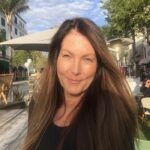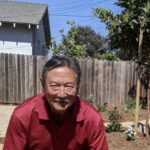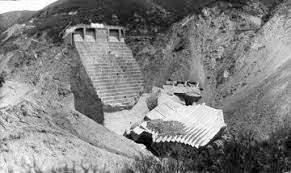by Amy Brown
Question: How did the more than year-long need to sequester affect you?
The year of Covid forced cancellation of trips to Africa and Yellowstone. It gave me situational depression, and gained weight! New skills included how to make bacon at home.
How did things change once the shutdown was over? Standing in line for the Covid vaccine was thrilling. Like when I felt after voting for our first Black president: excitement and hope.
What have you changed in your life or perspective since? We are still cautious when out. My life today is much more about appreciation and less about acquisition now.
 Kelly McCauley:
Kelly McCauley:
Hair Stylist at Shear View Salon
I’ll say it affected me not mentally, because I got used to being alone for a while, our shop was closed, I lost a few clients, some were scared to come back. I had a lot of projects! I was a rock painter for a little while.
How did things change once the shutdown was over? I love it! It feels normal. I actually went to Long Beach last weekend, although it was supposed to be mandated, no one was really wearing masks. I’ve been vaccinated, so I’m not really nervous to be around people. I believe if I am vaccinated, take vitamins and stay healthy, I will be ok.
What have you changed in your life or perspective since? It hasn’t changed my life; it makes me appreciate life differently–we should live for today, as tomorrow’s not promised to any of us.
 Tiler de long
Tiler de long
Busser at Aloha Steakhouse
It was actually very depressing being stuck at my house, all day, with all my siblings. Plus, my restaurant was shut down for months. I was never really scared of the worst of the pandemic, but it was hard being shut down.
How did things change once the shutdown was over? It made me happy, I got my life back to normal, instead of feeling so restricted. It’s way more busy at work, now that everyone can go out again.
What have you changed in your life or perspective since? This has made me appreciate the little things. And now it’s made me go out more than I ever did before. I realized how hard it was to be unable to go out for so long.
 Javier Mendoza
Javier Mendoza
Production Manager, BIRNS, Inc.
I don’t think I ever noticed how much of a social creature I was until being told I couldn’t go anywhere! Only then I realized how much I miss camaraderie with even total strangers. Even at bars, the DMV—during Covid no one could be near one another.
How did things change once the shutdown was over? It feels fantastic. I’m almost purposely trying to interact with more people, it’s something people missed, sparking up conversations at the grocery store—more so than ever, being able to talk to random strangers again. It feels good.
What have you changed in your life or perspective since? Definitely—I find the need to be more outgoing, I’ve always felt like I always was, even more so. We have a very limited time here anyways. We’ve sequestered for 1.5 years, and as scary as that was, during that time, being able to have people go back out again, it feels good to get to know new people and try new things. Less embarrassed trying new things, since being locked up for so long!


